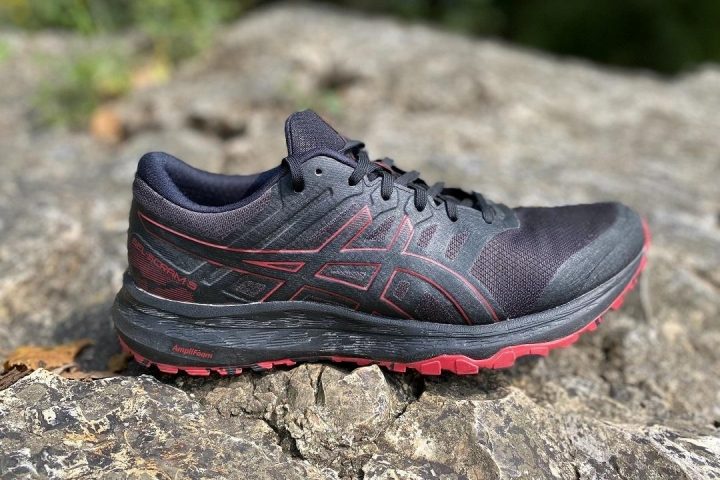Doc Martens are not specifically designed for hiking; their fashion-oriented build lacks the specialized features of hiking boots. While durable, they do not offer the same support and traction as traditional hiking footwear.
Doc Martens, iconic for their unique style and robust construction, have become a staple in many wardrobes since their inception in the 1960s. Originally designed for workwear, they are loved for their durability and comfort in urban settings. As such, they’ve gained a loyal following among those who appreciate a shoe that makes a statement while standing up to daily wear.
Yet when it comes to outdoor activities like hiking, it’s crucial to consider the kind of terrain and support needed. A well-rounded approach to footwear selection can prevent discomfort and injury, highlighting why specialized hiking boots are generally recommended for avid hikers.
:max_bytes(150000):strip_icc()/vwt-mens-snow-boots-test-danner-arctic-600-side-zip-marco-zuccarello-23-3bebd71b7cc34da8869174fc4cdf0f4d.jpeg)
Credit: www.verywellfit.com
The Doc Martens Legacy
Doc Martens, originally known for their street style, have become a popular choice for hikers. Their leather construction and durable rubber soles offer the resilience required for rugged terrains. Despite their fashionable origins, these boots boast features that make them a comfortable and trusted option for outdoor activities.
The air-cushioned soles provide ample support and shock absorption, crucial for long distances. Their iconic yellow stitching and heel loop speak to a heritage of quality. Yet, it is the boot’s ability to withstand various conditions that has won over the hearts of adventurers.

Credit: www.barnesandnoble.com
Fact-checking Doc Martens’ Suitability For Hiking
Doc Martens boots are designed for style and durability. The iconic air-cushioned soles and leather material can endure rough use. Yet, these features alone may not suffice on hiking trails. Proper hiking footwear typically requires enhanced ankle support and sturdy grips for safety and comfort on uneven ground.
While Doc Martens boast a strong build, they might not offer the flexibility needed for varied terrain. Hikers demand boots that can handle rocks, mud, and inclines. Doc Martens, known for their firm structure, might not be the best at this. Consider the potential break-in period and weight of the boot too.
Comparing Features With Traditional Hiking Boots
Doc Martens may not be the first choice for hikers, but they do offer features worth considering. Their soles provide decent traction which is crucial on unpredictable terrain. Nevertheless, compared to specialized hiking boots, the grip might fall short on very slippery or loose surfaces.
Water resistance is another factor to examine. Doc Martens are known for leather construction, which offers some protection against moisture. Yet, without proper treatment, they aren’t as effective in heavy rain or snow as boots designed for extreme weather. In terms of adaptability, hiking boots typically feature advanced technologies to combat various climates, which Doc Martens lack.

Credit: www.healthdesign.org
Trail-tested Experiences From Hikers
Doc Martens are a popular choice among some hikers. Their rugged design and durability offer a unique appeal. Yet, their suitability for hiking often sparks debate. A number of hikers have shared intriguing tales of trail adventures with these boots. Some report exceptional comfort after breaking them in. Others highlight the supportive fit during long treks.
But these boots have downsides. They are not specifically designed for hiking, potentially leading to discomfort on rough terrain. Their weight and lack of specialized soles also come up as negatives. Seasoned hikers suggest considering these factors before choosing Doc Martens for your next hike.
| Pros | Cons |
|---|---|
| Durable and rugged | Heavy and bulky |
| Supportive fit | Not specialized for hiking |
| Comfortable after break-in | Can cause discomfort on rough terrain |
Caring For Your Docs On And Off The Trail
To ensure your Doc Martens last during hiking adventures, regular maintenance is key. Clean mud and grime after each hike. Use a damp cloth for wiping boots. Apply leather conditioner to keep the material supple. This prevents cracks and damage.
For optimal protection, let boots air dry away from direct heat. Direct heat can harm the boots. Store them in a cool, dry place. Regular care maintains the boots’ integrity and comfort.
The Verdict: Are Doc Martens The Right Choice For You?
Doc Martens boots offer style for trail trekkers. Yet, are they practical for hiking? Evaluating their rugged build and durable leather suggests the boots can endure rough paths. Their air-cushioned soles provide some comfort. Flexibility and weight become crucial for long hikes. Many find these boots too heavy and lacking in support for such ventures.
Assessing individual hiking needs is essential. Light trekkers or fashion-conscious hikers may prefer style. Others prioritize function, seeking specialized hiking footwear. They look for features such as better traction and water resistance. These features are vital for challenging terrains. Personal comfort must align with boot performance for a suitable choice.
Ultimately, picking boots means balancing fashion and practicality. Choose wisely to ensure hiking trips are both enjoyable and safe. Good fit and function often trump style in the wild.
Frequently Asked Questions Of Are Doc Martens Good For Hiking
Are Doc Martens Suitable For Long Hikes?
Doc Martens can be worn for short hikes but may not be ideal for long, strenuous treks. They offer good ankle support but lack the cushioning and breathability designed for lengthy hiking.
How Do Doc Martens Perform On Rough Terrain?
While Doc Martens are durable, their soles are not specifically engineered for rugged terrain like dedicated hiking boots are, potentially affecting grip and comfort on uneven ground.
Can The Leather Of Doc Martens Withstand Outdoor Conditions?
Doc Martens’ leather is robust and can handle moderate outdoor conditions. However, it is not as specifically treated for weather-resistance as outdoor-oriented hiking boot materials.
Do Doc Martens Provide Adequate Foot Support For Hiking?
Doc Martens offer decent structural support but may not provide the targeted arch support and cushioning needed for the stress of hiking compared to specialized hiking shoes.
Conclusion
To wrap things up, Doc Martens offer a unique style and sturdy build suitable for light trails. Remember, they are not specifically designed for intense hiking. Prioritize boots made for the task if you’re hitting challenging terrains. Your feet will thank you for the extra care on those longer, more demanding hikes.

